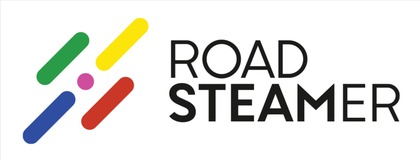STEAM Roadmap for Science Education in Horizon Europe
Provide your feedback and suggestions
Changes at "“Mission Education” - Systemic change of the educational system and assessment through coordinating STEM/STEAM education research actions"
Body
-
-["
- Relevant for
- 🔵 Research
- Description
- Develop Mission for the systemic change of EU education to orchestrate systemic innovation for transdisciplinary inclusive technical education in the EU to inform and work in close coordination with the upcoming “European STEM executive Panel” and the European skills high level board (STEM Education Strategic Plan pg. 8) to enact the STEM Education Strategic Plan’s goal of “Improve overall STEM skills intelligence based on international indicators and benchmarks, by measuring graduate outcomes in VET and tertiary education” (pg.8). Such long-term project (or rather, program) should overcome the “fragmentation of resources across programs” (pg. 12), coordinating research, deployment and testing the use of digital educatio and AI in all educational levels, to boost the opportunities that it provides for flexible (hybrid, blended, online) and inclusive (customized) skills-based education opportunities for vulnerable groups and learners with diverse abilities. It will have a structure as the EU Missions (cities, adaptation, soil, ocean and cancer), mobilizing systemic change through long-term (7-10 years) coordination of actions within and between Euopean countries (as the National platforms in the Mission “Cities” and the “deep dives” of the Mission “adaptation”) to deploy and investigate the role of project-based, transdisciplinary, AI-enhanced transdisciplinary (challenge-based or phenomenon-based) education in supporting EU priorities. The Mission Education should coordinate the definition of process and outcome indicators, collecting data and monitoring STEM and STEAM practices, programs, schools and universities in the EU to inform policy making for evidence-based educational reforms.
- Examples
- Potential funding instrument
- Horizon Europe Pillar 2, cluster 2 (Culture, Creativity and inclusive society; destination: “Innovative Research on Societal and Economic Transformation”) and cluster 4 (Digital, Industry and space)
- Suggested time frame
-
2026-20272028-2034
- Alignment with STEM Education Strategic Plan 2025
- This action expands the STEM Strategic Plan to orchestrate a systemic innovation in EU education, supporting the Union of Skills, to support the EU in achieving the goal of Improve overall STEM skills intelligence based on international indicators and benchmarks (pg.8).
-
+["
- Relevant for
-
🔵 Research🟡 Education🟢 ICT and digital💡 Expands the STEM strategic plan
- Description
- Develop Mission for the systemic change of EU education to orchestrate systemic innovation for transdisciplinary inclusive technical education in the EU to inform and work in close coordination with the upcoming “European STEM executive Panel” and the European skills high level board (STEM Education Strategic Plan pg. 8) to enact the STEM Education Strategic Plan’s goal of “Improve overall STEM skills intelligence based on international indicators and benchmarks, by measuring graduate outcomes in VET and tertiary education” (pg.8). Such long-term project (or rather, program) should overcome the “fragmentation of resources across programs” (pg. 12), coordinating research, deployment and testing the use of digital educatio and AI in all educational levels, to boost the opportunities that it provides for flexible (hybrid, blended, online) and inclusive (customized) skills-based education opportunities for vulnerable groups and learners with diverse abilities. It will have a structure as the EU Missions (cities, adaptation, soil, ocean and cancer), mobilizing systemic change through long-term (7-10 years) coordination of actions within and between Euopean countries (as the National platforms in the Mission “Cities” and the “deep dives” of the Mission “adaptation”) to deploy and investigate the role of project-based, transdisciplinary, AI-enhanced transdisciplinary (challenge-based or phenomenon-based) education in supporting EU priorities. The Mission Education should coordinate the definition of process and outcome indicators, collecting data and monitoring STEM and STEAM practices, programs, schools and universities in the EU to inform policy making for evidence-based educational reforms.
- Examples
- Potential funding instrument
- Horizon Europe Pillar 2, cluster 2 (Culture, Creativity and inclusive society; destination: “Innovative Research on Societal and Economic Transformation”) and cluster 4 (Digital, Industry and space)
- Suggested time frame
-
2026-20272028-2034
- Alignment with STEM Education Strategic Plan 2025
- This action expands the STEM Strategic Plan to orchestrate a systemic innovation in EU education, supporting the Union of Skills, to support the EU in achieving the goal of Improve overall STEM skills intelligence based on international indicators and benchmarks (pg.8).




